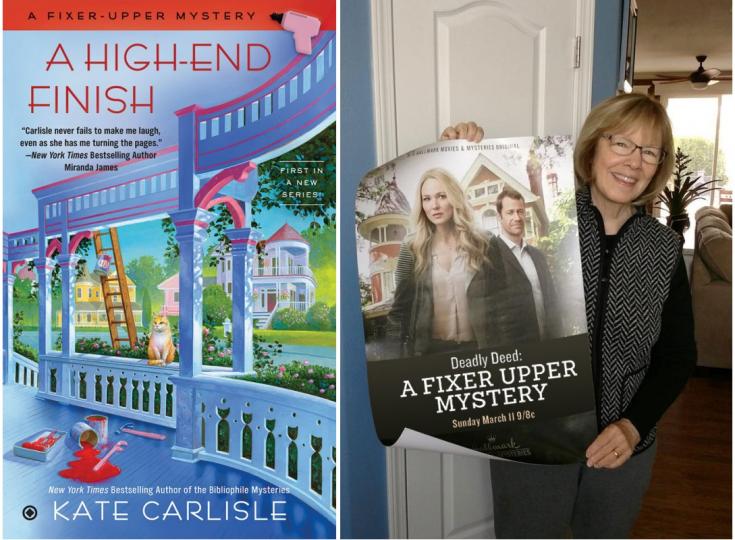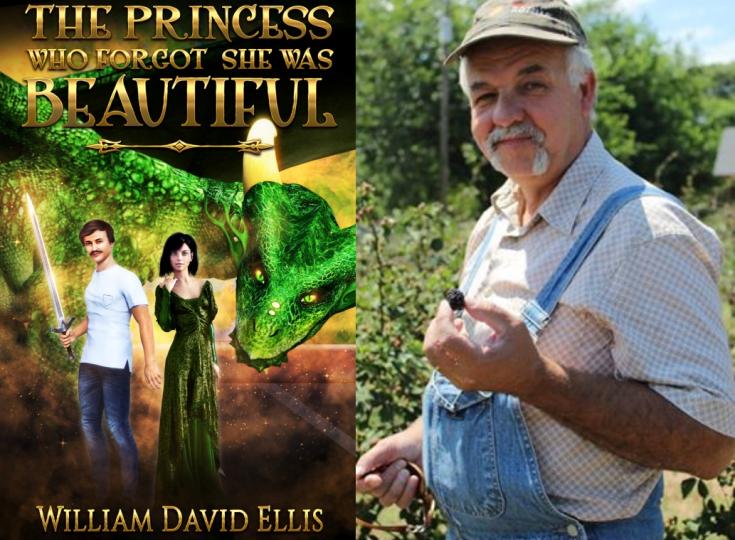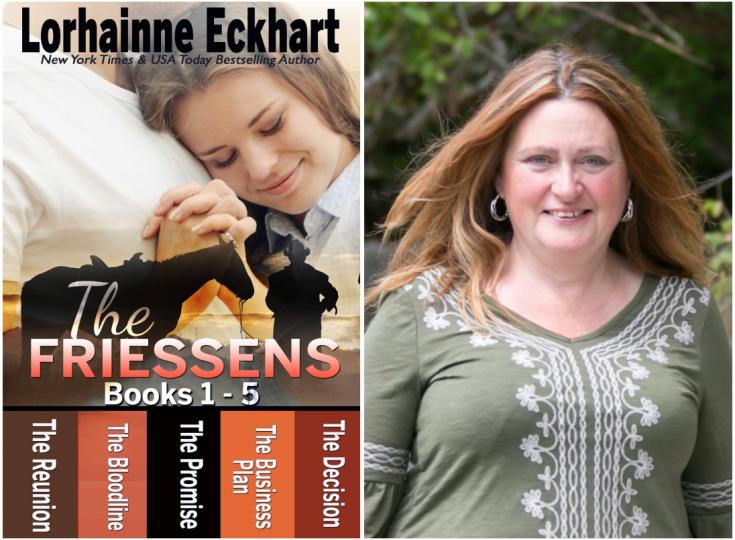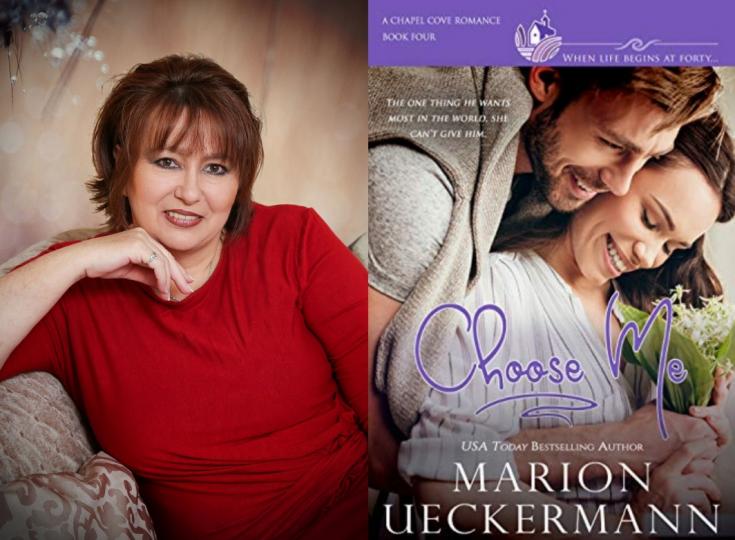Alice K. Boatwright - Cozy Mystery in a Small English Village
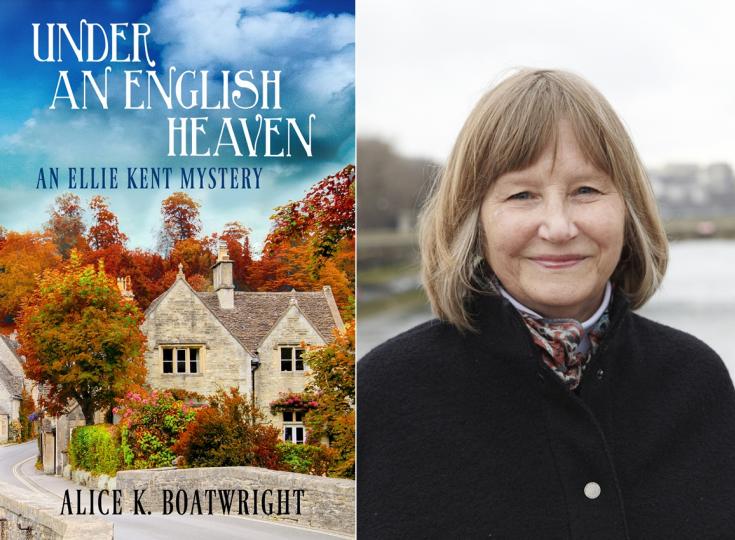
Alice K. Boatwright has always loved English village mysteries, especially the ones by authors such as Agatha Christie, Patricia Wentworth and Dorothy L. Sayers. She fell in love with Oxfordshire the first time she set foot there and ended up living for several years in the Cotswolds. This setting has been an inspiration to her ever since and as our Author of the Day, Boatwright tells us more about her novel, Under an English Heaven and her main character, Ellie Kent, who is also an American who moves into a small English village.
Please give us a short introduction to what Under an English Heaven is about.
In Under an English Heaven, Ellie Kent moves from San Francisco to a village in the Cotswolds with her new husband, Graham. At first she imagines that her biggest problem will be that people in Little Beecham might see her only as that young American who snared their attractive vicar during his sabbatical in California. But this challenge is nothing compared to what happens when she stumbles across a body in the churchyard. The villagers insist they don’t know the murdered man, so suspicion mounts that the killer must be the incomer – the vicar’s new wife. As evidence piles up against her, Ellie uses the research skills she developed as an English professor to stay one step ahead of the police and unravel a decades-old literary mystery and love story. Will others die before she can solve it? And what will be left of her new life and marriage, even if she succeeds? Find out. . . by reading the book.
Why did you pick a small English village as the setting for your book?
I have always loved English village mysteries, especially the early ones by Agatha Christie, Patricia Wentworth, Margery Allingham, and Dorothy L. Sayers. My husband and I are long-time Anglophiles, so we used our vacations to explore England and fell in love with Oxfordshire and the Cotswolds. Eventually we moved there and lived in a lovely village for several years– which is where I began the Ellie Kent mysteries.
Under an English Heaven won the 2016 Mystery and Mayhem Grand Prize in the Chanticleer International Book Awards competition. What has the experience been like?
I am honored and delighted that Under an English Heaven received this award. The Grand Prize! Wow. Although I have been writing and publishing for a long time, this was my first mystery, so receiving that recognition has been very special. It is also helping the book reach new audiences.
Tell us more about Ellie Kent. Why did you make her a vicar's wife?
Although I set out to write an English village mystery, I wanted my protagonist to be American, like I am, so that I could explore the difficulties of establishing yourself in a culture not your own. As the vicar’s wife, Ellie gains some advantages that offset her limitations as a foreigner and outsider. For example, she has an instant leading role in village life that ordinarily she would never have. It’s also part of that role to help people and become involved with their lives. This gives her a point of access that motivates and enables her investigations as an “informal detective”.
Will we see more of Ellie Kent in the future?
The first four books will be about Ellie’s first year in England. What Child Is This? will be published in late 2017. This story is set at Christmas, picking up only a few weeks after the first book ends.
Why do you write mysteries? What is it about the genre that draws you?
I think the enduring appeal of mysteries comes from readers’ basic desire to see good triumph over evil and their pleasure in solving a puzzle. In the past I have written short stories (various settings and themes) and historical fiction (about the Vietnam War era), and first undertook writing a mystery “for fun.” It is fun to create the puzzle – but it’s also a serious business to develop engaging, believable characters and take them through a plot where their actions and interactions have life-or-death consequences.
How do you keep your readers from guessing the outcome before the end of the book?
This is a challenging aspect of mystery writing, because the author always knows the outcome and can therefore never perceive the story the way a reader does. All you can do is try to weave a pattern that keeps the key threads visible and invisible at the same time. I am always amazed when people say they didn’t know “whodunit” until the end. Very pleased too, of course.
You have a knack for creating very believable characters with authentic motivations and actions. How do you pull this off?
I spend a lot of time with my characters, getting to know them and loving them – even the ones who behave badly. I have a background in theatre, so I think about each scene as if it were in a play, and I am acting all the parts. What is the motivation of each character in the scene, how is it advancing or obstructing their various goals, and how do I show that through their actions and dialogue? At best, the characters begin to drive this process, so it is surprisingly interactive.
Besides writing, what other cool skills do you have?
I am very good at playing games with cats and make an excellent spinach soufflé.
Readers compare your writing to that of Agatha Christie. Are you a fan?
Agatha Christie is a favorite of mine because her writing is so fresh and clean, and her mysteries are very clever. I love Miss Marple. In fact, I would like to grow up to be Miss Marple in my old age. In my younger years, though, I would like to be Harriet Vane, the successful detective novel writing sleuth/partner of Lord Peter Wimsey. The fact that my goal in life is to turn into a fictional character myself may explain why I am a writer.
Do you have any interesting writing habits? What does an average writing day look like for you?
When I had a job that required me to start my commute at 7 am, I was a very early morning writer, because this was the only time of day when I could do it. Now I have a more flexible schedule, and I write throughout the day. My favorite times are the morning and the late afternoon. Sometimes I take the weekend off, sometimes not.
Do you plot out your books before you start writing?
When I begin, I know the ending and have a rough idea of the story’s starting point and main events, but I never use outlines. For me, the pleasure in writing is in letting the story unfold, while keeping an eye out of the unexpected detail that takes it in a direction I couldn’t have planned in advance. The “what” and “when” facts do not reveal the “how” and “why”, which are the interesting parts for me. When I am well into the book (say the second or third draft), I do analyze what I have so far in terms of structure, pacing, and missing or overwritten parts. I think of this as something like reverse outlining.
What are you working on right now?
My main project is finishing the second Ellie Kent mystery, but I also change focus and work on stories, children’s books, and other projects. One of my bucket list items is to write and illustrate a children’s picture book some day.
Where can our readers discover more of your work or interact with you?
My website at http://alicekboatwright.com gives a good overview of my work and offers a link to subscribe to my periodic newsletter. You can also subscribe directly at http://eepurl.com/cER4Cj.
Facebook and Twitter are the more interactive places to find me. Those links are:
Facebook (thanks for “liking” my page!): https://www.facebook.com/alicekboatwright/
Twitter (thanks for following me!): https://twitter.com/aliceboatwright
